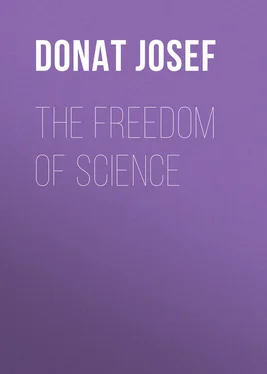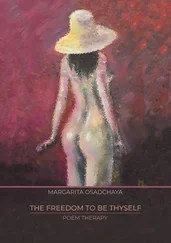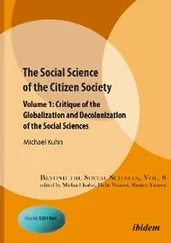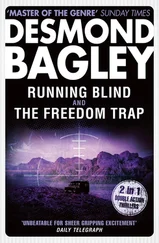Josef Donat - The Freedom of Science
Здесь есть возможность читать онлайн «Josef Donat - The Freedom of Science» — ознакомительный отрывок электронной книги совершенно бесплатно, а после прочтения отрывка купить полную версию. В некоторых случаях можно слушать аудио, скачать через торрент в формате fb2 и присутствует краткое содержание. Жанр: foreign_antique, foreign_prose, на английском языке. Описание произведения, (предисловие) а так же отзывы посетителей доступны на портале библиотеки ЛибКат.
- Название:The Freedom of Science
- Автор:
- Жанр:
- Год:неизвестен
- ISBN:нет данных
- Рейтинг книги:4 / 5. Голосов: 1
-
Избранное:Добавить в избранное
- Отзывы:
-
Ваша оценка:
- 80
- 1
- 2
- 3
- 4
- 5
The Freedom of Science: краткое содержание, описание и аннотация
Предлагаем к чтению аннотацию, описание, краткое содержание или предисловие (зависит от того, что написал сам автор книги «The Freedom of Science»). Если вы не нашли необходимую информацию о книге — напишите в комментариях, мы постараемся отыскать её.
The Freedom of Science — читать онлайн ознакомительный отрывок
Ниже представлен текст книги, разбитый по страницам. Система сохранения места последней прочитанной страницы, позволяет с удобством читать онлайн бесплатно книгу «The Freedom of Science», без необходимости каждый раз заново искать на чём Вы остановились. Поставьте закладку, и сможете в любой момент перейти на страницу, на которой закончили чтение.
Интервал:
Закладка:
Hence, the act of faith by which I believe that the Son of God became man, that I shall rise from the dead, is first of all a judgment of the reason , not an act of the will, or a feeling of the heart. It is, moreover, a certain rational judgment upon weighty reasons, not, indeed, such which I draw from intellectual knowledge, but those which rest upon the infallible testimony of God. The act of faith agrees therefore with assent to historic truth in that it is of the same kind of knowledge, but upon the authority of infallible testimony. Just as I believe that Alexander once marched victoriously through Asia, because there is sure testimony to that effect, so I believe that I shall rise from the dead, because God has revealed it. The difference being that in the former case we have only human testimony, whereas in the latter God Himself speaks. Thus, according to Catholic teaching, faith and knowledge may be distinct from each other, but in a sense quite different from that of the representatives of modern, sentimental faith. The latter understand knowledge, in this connection, to be any judgment of the reason based upon evidence, and they deny that faith is such; but to a Catholic, faith, too, is a judgment of the reason , and in this sense true knowledge; only it is not knowledge in the more common sense of a cognition derived from one's own mental activity without the external means of authority.
As we have heard from the Vatican Council, it is the recognized fact of divine revelation which bestows upon the matter of faith its certainty in reason. Hence the knowledge of this fact must precede faith itself. But the knowledge must be certain, not merely a belief, for it is the very presupposition of belief, but a knowledge, derived from the intellect, which may at any time be traced back to scientific proofs if there is the requisite philosophical training. So long as man is not certain that God has spoken, he cannot have faith according to the Catholic view. One of the sentences condemned by Innocent XI. , to say nothing of other ecclesiastical testimonies, is this: “The assent of supernatural faith, useful for salvation, can exist with merely probable information of the fact of revelation, even with the fear that God has not spoken.” And very recently there has been condemned also the proposition: “The assent of faith ultimately rests upon a sum of probabilities” (Decretum Lamentabile, July 3, 1907. Sent. 25).
It cannot be our task here to show at length how the Christian arrives at this certain knowledge. Our present purpose is only to state the Catholic concept of faith. We have already heard the Vatican Council refer to miracles and prophecies. To most of the faithful the chief fact that offers them this security is the wonderful phenomenon of the Catholic Church itself, which proposes to them the doctrines of faith as divine revelation.
Thus again the Vatican Council defines clearly: “To enable us to do our duty in embracing the true faith and remaining in it steadfastly, God has through His incarnate Son established the Church and set plain marks upon His institution, in order that it may be recognized by all as the guardian and interpreter of revelation. For only the Catholic Church possesses all those arrangements, so various and wonderful, made by God in order to demonstrate publicly the credibility of Christianity. Indeed the Church of itself, because of its wonderful propagation, its pre-eminent sanctity and inexhaustible fecundity in everything good, its Catholic unity and invincible duration, is a grand permanent proof of its credibility and irrefutable testimony in behalf of its divine mission. Thus, like a 'standard unto the nations,' it invites those to come to it who have not yet believed, and assures its children that the faith they profess rests upon a most firm foundation.”
The Catholic looks with pride upon his Church: she has stood all the trials of history. He sees her endure, though within harassed by heresies and endangered by various unworthiness and incapacity of her priests, and attacked incessantly from without by irreconcilable enemies, yet prevailing victoriously through the centuries, blessing, converting nations and beloved by them; while by her side worldly kingdoms, supported by armies and weapons, go down into the grave of human instability. The most wonderful fact in the world's history, contrary to all laws of natural, historical events, – here a higher hand is plainly thrust into human history; it is the fulfilment of the divine promise: “I am with you all days, even to the consummation of the world.” “The gates of hell shall not prevail against it.” He sees the Saints, who have lived in this Church and have become saints through her, those superhuman heroes of virtue, who far surpass the laws of human capacity.
In the most widely different states of life in the Church he sees virtue grow in the degree in which one submits to her guidance. He witnesses the remarkable spectacle, that everything noble and good is attracted by the Church, and their contrary repelled. He sees the miracles which never cease in her midst. Finally he beholds her admirable unity and vigorous faith; she alone holding firm to her teaching, not compromising with any error; she alone holding fearlessly aloft the principle of divine authority, and thus becoming a beacon to many who are seeking a safe shelter from spiritual ruin. In addition we finally have that harmony and grandeur of the truths of faith, and – perhaps not in the last place – that calm and peace of mind, produced in the faithful soul by a life led according to this faith, by prayer and the reception of the Sacraments. This is a clear proof that where the Spirit of God breathes there cannot be the seat of untruth.
These are sufficient proofs to produce even in the uneducated, and in children, true and reasonable certainty, provided they have had sufficient instruction in religion. It must, however, be emphasized that this conviction produced by faith need not first be gained by scientific investigation of the motives of faith, or by minute or extensive theological studies. A wrong notion of human knowledge frequently leads to the opinion that there is no true certainty at all unless it is the result of scientific study – a presumption on which is based the claim of freedom of science to disregard any conviction, be it ever so sacred, and the claim that it is reserved to science alone to attain the sure possession of the truth. Later on we shall dwell more at length upon this important point. Let it suffice here to remark that the intellect can attain real certainty even without scientific research; most of our convictions, which we all hold unhesitatingly as true, are of this kind. They constitute a belief that is based upon the real knowledge of the reason, which knowledge is not, however, so clear and distinct that it could be demonstrated easily in scientific form.
The certainty of faith, therefore, is based upon the knowledge that God Himself vouches for the truth of the teachings of faith. This relieves the faithful from the necessity of obtaining by his own reflection an insight into the intrinsic reasons of the why and the wherefore of the proposed truth, and to examine in each instance the correctness of the thing. He knows that God has revealed it, that His infallible Church vouches for it; hence it is credible and true; that suffices for him, just as trustworthy evidence suffices for the historian concerning facts which he himself has not observed.
Let no one say that faith is a blind belief and blind obedience, and that dogmatic Christianity, or, to use another phrase, “the religion of the law, demands first of all obedience: it is true it would like, besides that, an interior assent for its thoughts and commandments, but where this is lacking the law itself furnishes the ways and means to compensate the lack of this internal assent, if only obedience is there” ( A. Harnack , Religioeser Glaube u. freie Forschung. Neue Freie Presse, June 7, 1908). Nor let any one say that free research has “at least this advantage over dogma, that its claims can be proved, which is not true of the other's claims” ( J. H. van't Hoff , ibid., Dec. 29, 1907). These are misrepresentations.
Читать дальшеИнтервал:
Закладка:
Похожие книги на «The Freedom of Science»
Представляем Вашему вниманию похожие книги на «The Freedom of Science» списком для выбора. Мы отобрали схожую по названию и смыслу литературу в надежде предоставить читателям больше вариантов отыскать новые, интересные, ещё непрочитанные произведения.
Обсуждение, отзывы о книге «The Freedom of Science» и просто собственные мнения читателей. Оставьте ваши комментарии, напишите, что Вы думаете о произведении, его смысле или главных героях. Укажите что конкретно понравилось, а что нет, и почему Вы так считаете.












